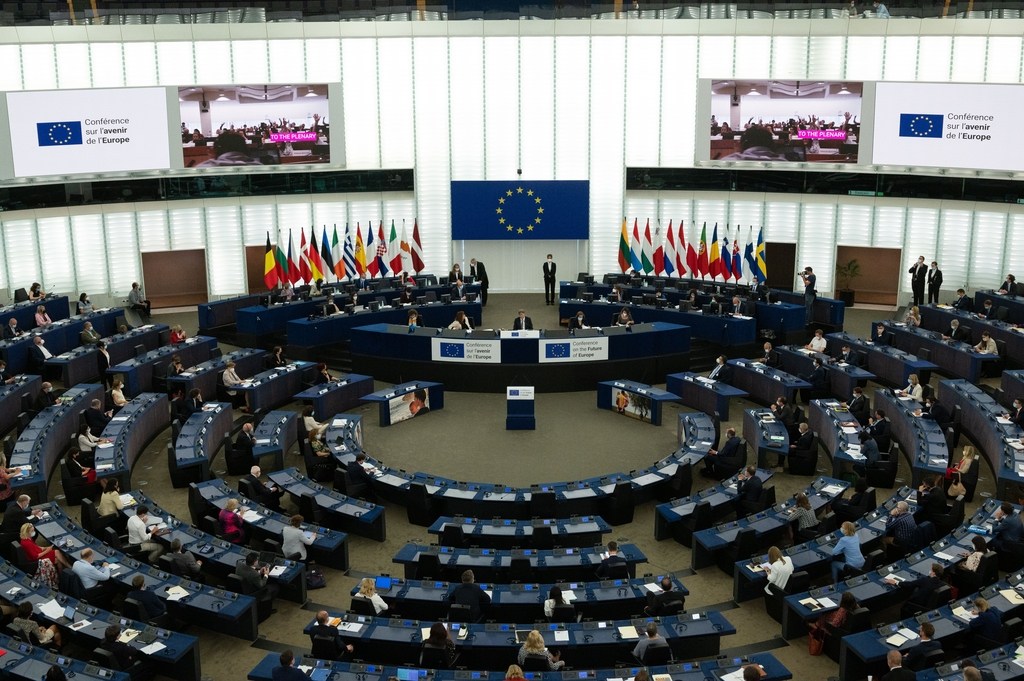The inaugural plenary session of the conference was held on Saturday in Strasbourg and might set the tone for the debates to follow.
The Conference Plenary was composed of 108 representatives from the European Parliament, 54 from the Council (two per Member State) and 3 from the European Commission, as well as 108 representatives from all national Parliaments on an equal footing and ordinary citizens.
Eighteen representatives from both the Committee of the Regions and the European Economic and Social Committee, and another eight from both social partners and civil society did also participate.
More citizens from all member states will participate in future plenaries but the selection process for them has not yet been completed. The selection of citizens will be random and carried out by phone, ensuring that they will be representative by gender and age.
108 Europeans will participate to discuss ideas stemming from the Citizens' Panels and the Multilingual Digital Platform: 80 representatives from the European Citizens’ Panels, of which at least one third will be younger than 25, and 27 from national Citizens’ Panels or Conference events (one per Member State),
Following opening statements by the Co-Chairs of the Executive Board, the plenary discussed the purpose and expectations of the Conference, comprising the European Citizens’ Panels, the National Panels and events, and the Multilingual Digital Platform. The second part focused on more procedural matters including the calendar of the Conference and future events.
The European Citizens’ Panels will convene in September and October to prepare their input to future plenary debates, including a set of recommendations for the Union to follow-up on, based on citizens’ contributions collected via the Platform.
“I see the Conference as a relay race,” said Parliament’s Co-Chair of the Executive Board, Guy Verhofstadt at the plenary (19 June).
“Citizens participating in panels will start it by defining their wishes and recommendations. Then, over several plenary sessions, they will hand over the baton and we will formulate concrete proposals for reform based on their recommendations. The final stage of this race is to approve and implement these reforms through our democratic institutions.”
MEP Daniel Freund (Greens/EFA, DE), member of the Conference Executive Board, sounded the alarm about the rise of illiberalism in Europe and called on the EU to deliver “on the big challenges of our time: climate change, taxing big corporations, defending our interests in the world and our values at home. The reason why the EU is not delivering on those is a design flaw, and that is unanimity.”
The political party groups in the European Parliament are expected to submit their own proposals to the Conference but an overview of them seems to be missing for the moment. Some of them might require treaty changes. At a press briefing on Friday, Daniel Freund said that his group will present three concrete proposals:
- Establish a fund for the sustainable transformation of EU towards climate neutrality
- Abolish unanimous voting in the Council in issues relating to the rule of law, taxation and foreign policy
- Reform European elections by allowing pan-European or transnational parties to participate in them
M. Apelblat
The Brussels Times

